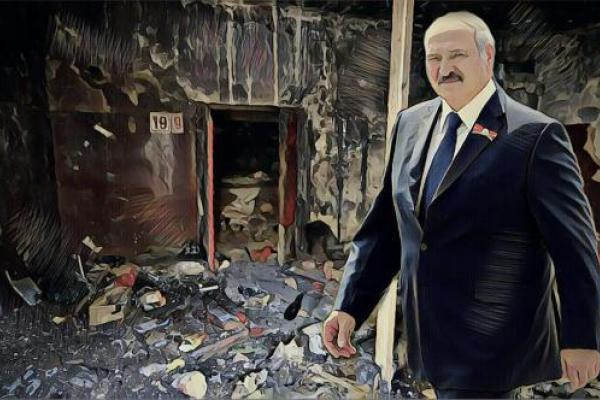1- Taking companies to court
Thanks this investigation, The French Oil Company Perenco S.A. is now facing the Paris Court of Justice. This is the first case in which a French company has been held liable for environmental damage caused abroad. This case, researched by Lea Szulewicz, Dorian Cabrol, Alexandre Brutelle and Baron Nkoyproves, proves that Perenco S.A. had the means to act but did not take the necessary measures to prevent and stop the pollution linked to the group's oil activities in the DRC. Perenco may now be forced to repair the ecological damage already caused in the DRC to stop the pollution, and prevent future environmental damage. On the other hand, French energy transition minister Agnès Pannier-Runacher was placed at the heart of a discrete inheritance scheme linked to hedge funds based in tax haven countries. Her father, a long-serving Perenco executive, set up a company to donate a €1.2 million investment portfolio to the minister’s children.
2- Putting industries and oligarchs under the spotlight
A leading company is now under spotlight by the European Environmental Agency for potential unlicensed extraction. As part of a cross-border project to investigate the peat extraction industries in Ireland and Latvia, the Irish investigative platform Noteworthy has examined the impacts of unlicensed peat extraction across the country. The findings of that cross-border investigation revealed a system of largely unregulated peat extraction that continues to this day where the Irish State has largely faltered on its enforcement role, including that no local or national authority maintains a register of peat companies or the amount of peat extracted for commercial purposes.
An investigation of Šarūnas Černiauskas (Lithuania), Irma Bogdanoviciute (Lithuania) and Stanislau Ivashkevich (Belarus) followed the trail of the Belarusian elites. After that, Alexander Zaytsev and Aliaksei Aleksin, two Belarusian businessmen considered to be close to the Alexander Lukashenko regime, were officially included in the EU sanctions package that started on 21 June 2021.
When the sanctions against Aleksin and Zaytsev were imposed, the official sanction implementation decision mirrored the team's stories in a large extent. Companies mentioned in the stories were indicated to be the source of the oligarchs' benefiting from their relationship with the regime, further stressing the importance of the investigative work.
"Sometimes, it takes years for an investigative story to have a clear impact. Sometimes, it never happens. In this case, international sanctions came 8 months after we ran our first story, and this is the first time when my work makes this kind of an impact. In my perspective, investigative journalism isn't about punishing people. It's about getting the truth out to the world - even from regimes as tight as the one in Belarus. And once the truth is out, change will come sooner or later", underlines the team leader Sarunas Cerniauskas.
3- Making pressure on lawmakers
EU lawmakers are now under pressure to act after a cross border investigation revealed that 70,000 to 90,000 annual asbestos-related deaths occur in Europe — not including the growing number of cancers by exposure at homes, schools, hospitals, and offices. The European Parliament asked for a broad asbestos strategy under different headings. The headings include a framework directive binding members to act, new occupational exposure limits (OEL) for workers 100 times lower than the present OEL, a compulsory register of buildings where asbestos is present, and a pan-EU recognition and compensation scheme for asbestos victims.
4- Generating prosecutor’s investigations
A French anti-terrorist prosecutor's office has opened a preliminary investigation about complicity in war crimes and crimes against humanity on the association SOS Chrétiens d'Orient based on the investigation by journalists Ariane Lavrilleux, Frank Andrews, and Elie Guckert.
In Italy, two months after the broadcast of The Logging Business, a video investigation, the prominent anti-mafia public prosecutor Nicola Gratteri coordinated a big police operation with arrests on the woody biomass supply chain in Calabria. The CEOs of the 5 Calabrian biomass facilities are now under investigation for fraud for having asked for undue public subsidies and for having burned wood that originated in illegally logged forests. The same supported project led the Italian party M5S to withdraw its vote for the request for incentives for forestry biomass power plants and to state that “there are controversial issues regarding biomass”
5- Making instant change
The research by journalists Eelco van Wieringen (Buro Publieke Werken, Holland), Micael Pereira (Expresso Portugal), and Twan Kroon (researcher, Holland) showed that the age of port wines is often incorrect. Based on that investigation, some port wines were reported to the Food Fraud Network, a partnership of the European food authorities, and in some countries like the Netherlands, some port wines have been withdrawn for sale. “Deception with Port” research got an immediate impact just after its first publication. Something similar happened after a research that asked if the EU’s craze for lithium fuels destructive mining operations in Serbia. The Jadar mining project is on hold now.
